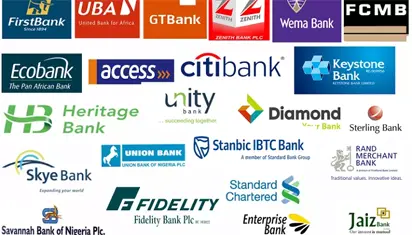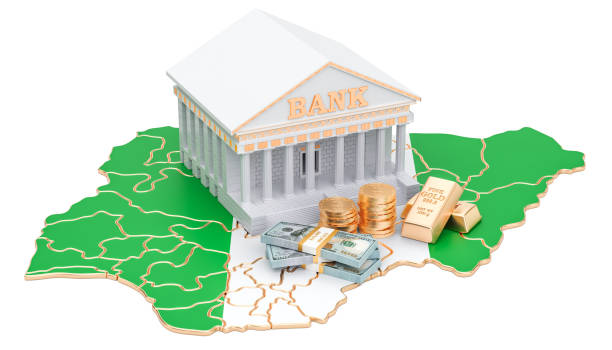In Nigeria, bank sort codes are essential for seamless and accurate financial transactions. They serve as unique identification numbers assigned to each bank branch, ensuring that transfers and transactions are correctly routed.
What are Sort Codes?
A bank sort code is a nine-digit number that helps identify a specific bank branch. It serves as an essential component in interbank transfers, ensuring that funds are accurately directed to the intended recipient’s branch. Each bank branch has a unique sort code, making it easier to differentiate between various locations of the same bank.
Join our WhatsApp ChannelREAD ALSO: Nigerian Banks, POS Street Vendors: A Collusion Crisis Of Transparency
Importance of Bank Sort Codes
- Accurate Transaction Routing: Sort codes ensure that transactions are directed to the correct branch, minimising errors and delays in fund transfers.
- Enhanced Security: By providing a unique identifier for each branch, sort codes add an additional layer of security to banking transactions, reducing the risk of fraud.
- Streamlined Interbank Transfers: Sort codes facilitate smooth and efficient transfers between different banks, both within Nigeria and internationally.
- Simplified Banking Processes: For businesses and individuals managing multiple accounts, sort codes simplify the process of organising and tracking transactions.
20 Nigerian Banks and Their Sort Codes
Here are the sort codes of some popular Nigerian banks:
| Bank Name | Sort Code |
| Access Bank | 44150149 |
| Diamond Bank Plc | 63150162 |
| Ecobank Nigeria Plc | 50150311 |
| Equitorial Trust Bank Limited | 40150101 |
| Fidelity Bank Plc | 70150003 |
| First Bank of Nigeria Plc | 11152303 |
| FCMB Plc | 85151275 |
| Guaranty Trust Bank Plc | 58152052 |
| Keystone Bank | 82150017 |
| Mainstreet Bank | 14150030 |
| Nigeria International Bank (Citigroup) | 23150005 |
| Polaris Bank Plc | 76151006 |
| Stanbic IBTC Bank Plc | 221159522 |
| Standard Chartered Bank Nigeria Ltd | 68150057 |
| Sterling Bank Plc | 23215009 |
| United Bank for Africa Plc (UBA) | 33154282 |
| Union Bank of Nigeria Plc | 32156825 |
| Unity Bank Plc | 21508234 |
| Wema Bank Plc | 35150103 |
| Zenith Bank Plc | 57150013 |
Finding Bank Sort Codes
- Online Banking Platforms: Most Nigerian banks have integrated online banking platforms where customers can easily find the sort codes of their respective banks. Log in to your online banking account and navigate to the bank’s information section or the FAQ page to locate the sort code.
- Bank Websites: Visit the official website of your bank and look for the “Branch Locator” or “Contact Us” section. Many banks provide a list of their branches along with their respective sort codes.
- Central Bank of Nigeria (CBN) Website: The CBN also maintains a comprehensive list of bank sort codes on their official website. Visit www.cbn.gov.ng and navigate to the relevant section to access the information.
How to Use a Sort Code
Using a sort code is straightforward, especially when conducting various banking transactions. Here’s how you can use a sort code effectively:
- Transferring Funds Between Banks: When initiating an interbank transfer, you’ll need the recipient’s bank account number and the sort code of the recipient’s bank branch. Enter the sort code in the designated field on the transfer form or online banking platform to ensure the funds are directed to the correct branch.
- Setting Up Direct Debits and Standing Orders: Provide the sort code along with the bank account number to set up direct debits or standing orders. The sort code helps the system identify the correct branch to debit or credit the account regularly.
- Receiving Payments: Share your bank account number and sort code with employers, clients, or anyone sending you money. This information ensures that payments are routed accurately to your bank branch.
- International Transactions: For international transactions, you might need to provide your sort code along with the SWIFT/BIC code. The sort code helps in identifying the specific branch within Nigeria for receiving funds.
- Verifying Bank Details: When confirming payment details, always double-check the sort code to ensure it matches the intended bank branch. This verification helps prevent errors and misdirected transactions.
Practical Example
Suppose you need to transfer money to a friend who has an account with Zenith Bank at a specific branch. You would require the following details:
- Recipient’s Account Number: The unique number for your friend’s bank account.
- Recipient’s Sort Code: The sort code for the specific Zenith Bank branch, e.g., 057150013.
- When you input these details in your banking app or transfer form, the sort code will ensure the funds are directed to the correct Zenith Bank branch.
Tips for Using Sort Codes
- Double-Check Details: Always verify the sort code and account number before confirming any transaction to avoid errors.
- Keep Information Secure: While sort codes are not confidential, ensure you share them only when necessary and with trusted parties.
- Use Official Sources: Obtain sort codes from official bank websites or directly from the bank to ensure accuracy.
By understanding and correctly using sort codes, you can facilitate smooth and accurate banking transactions.
Frequently Asked Questions (FAQs)
Can I use any branch’s sort code for transactions?
No, it is important to use the specific sort code of the branch where the account is held. Using the wrong sort code may result in delays or misdirected transactions.
Are sort codes confidential information?
Sort codes are not considered confidential information. They are used for official banking purposes and are publicly available.
Is a sort code necessary for all types of transactions?
Sort codes are primarily used for interbank transfers. For transactions within the same bank, the sort code may not be required.

















Follow Us